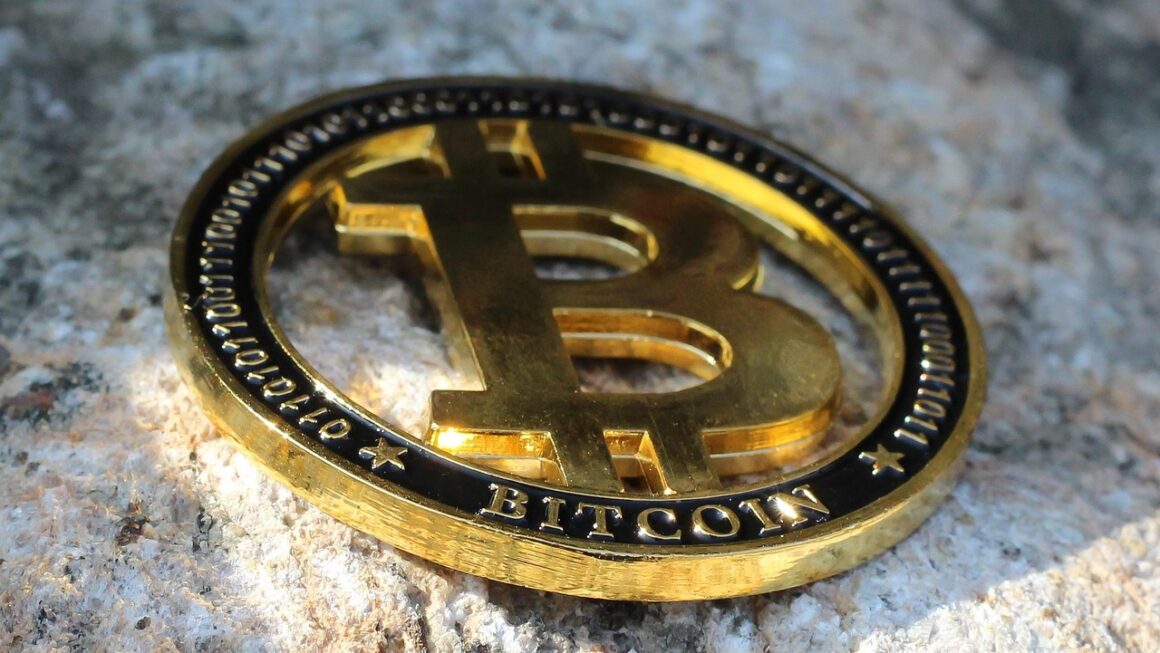Smart contracts are rapidly transforming how we think about agreements, trust, and automation in the digital age. Imagine contracts that execute themselves, eliminating the need for intermediaries and ensuring transparency every step of the way. This is the power of smart contracts, and this guide will walk you through everything you need to know about them.
What are Smart Contracts?
Defining Smart Contracts
Smart contracts are self-executing agreements written in code and stored on a blockchain. They automatically enforce the terms of a contract when predetermined conditions are met. Think of them as digital vending machines: input the correct payment, and the machine dispenses the product. Similarly, when specific conditions are fulfilled in a smart contract, the agreed-upon actions are automatically executed.
For more details, see Investopedia on Cryptocurrency.
- These contracts are immutable, meaning they cannot be altered once deployed on the blockchain.
- They are transparent, as the code and transaction history are publicly viewable on the blockchain.
- They eliminate the need for intermediaries like lawyers or escrow services, reducing costs and increasing efficiency.
How Smart Contracts Work: The Core Components
Smart contracts consist of several key components:
- Parties: The individuals or entities involved in the agreement.
- Subject Matter: The asset, service, or agreement being governed by the contract.
- Terms and Conditions: The rules and conditions that trigger the execution of the contract.
- Blockchain: The decentralized ledger that stores the contract code and transaction history.
- Execution: The automatic enforcement of the contract terms when the specified conditions are met.
- Example: Consider a smart contract for buying a house. The contract might specify that ownership is transferred to the buyer when they deposit the agreed-upon purchase price into a designated escrow account (controlled by the smart contract). Once the funds are received and verified on the blockchain, the contract automatically updates the property ownership records.
Benefits of Using Smart Contracts
Increased Efficiency and Speed
Traditional contracts often involve lengthy negotiations, paperwork, and manual processes. Smart contracts automate these steps, significantly reducing the time it takes to execute an agreement.
- Reduced Processing Time: Automation speeds up the entire contract lifecycle.
- Elimination of Paperwork: Everything is digital, reducing reliance on physical documents.
- Faster Transactions: Payments and asset transfers are executed almost instantly.
Enhanced Security and Transparency
The inherent nature of blockchain technology makes smart contracts highly secure and transparent.
- Immutable Records: Once deployed, smart contracts cannot be altered, preventing tampering.
- Decentralized Storage: Data is distributed across multiple nodes, reducing the risk of a single point of failure.
- Publicly Auditable: All transactions and contract code are visible on the blockchain, promoting transparency.
Cost Reduction
By eliminating intermediaries and automating processes, smart contracts can significantly reduce costs.
- Reduced Legal Fees: Minimizes the need for lawyers and legal services.
- Lower Transaction Fees: Blockchain-based transactions often have lower fees compared to traditional methods.
- Elimination of Middlemen: Removes the cost of using escrow services or other intermediaries.
Improved Trust and Reliability
Smart contracts build trust by ensuring that agreements are executed as intended, without relying on human intervention.
- Automatic Enforcement: Contract terms are automatically enforced, reducing the risk of disputes.
- Predictable Outcomes: Parties can rely on the contract to execute as programmed, providing certainty.
- Reduced Counterparty Risk: Minimizes the risk of one party failing to fulfill their obligations.
Applications of Smart Contracts
Supply Chain Management
Smart contracts can track goods and materials as they move through the supply chain, improving transparency and efficiency.
- Tracking Provenance: Verifying the origin and authenticity of products.
- Automated Payments: Automatically releasing payments upon delivery confirmation.
- Improved Inventory Management: Real-time tracking of inventory levels.
- Example: A coffee company could use a smart contract to track beans from the farm to the roaster, ensuring fair prices and preventing fraud.
Financial Services
Smart contracts are revolutionizing financial services by automating lending, insurance, and other financial products.
- Decentralized Lending: Facilitating peer-to-peer lending without intermediaries.
- Automated Insurance Claims: Automatically processing insurance claims based on predefined conditions.
- Secure Payments: Enabling secure and transparent payments between parties.
- Example: A decentralized lending platform can use smart contracts to automatically disburse loans and collect repayments.
Real Estate
Smart contracts can streamline real estate transactions, making them faster, more efficient, and more transparent.
- Automated Property Transfers: Automating the transfer of property ownership.
- Escrow Services: Managing escrow funds securely and automatically.
- Tokenization of Real Estate: Creating fractional ownership of properties through tokens.
- Example: Smart contracts can automate the process of transferring property ownership once the buyer deposits the agreed-upon funds, eliminating the need for traditional title companies.
Healthcare
Smart contracts can improve healthcare by securely managing patient data and automating insurance claims.
- Secure Data Storage: Storing patient data securely and privately on the blockchain.
- Automated Claims Processing: Automatically processing insurance claims based on medical records.
- Improved Data Sharing: Facilitating secure data sharing between healthcare providers.
- Example: A smart contract can ensure that a patient’s medical records are only accessible to authorized healthcare providers, improving data privacy and security.
Challenges and Limitations
Scalability
Blockchain networks can sometimes be slow and expensive, which can limit the scalability of smart contracts.
- Transaction Throughput: Some blockchains have limited transaction throughput, which can slow down smart contract execution.
- Gas Fees: Transaction fees (known as “gas” on some blockchains) can be high, making smart contracts expensive to use.
Security Vulnerabilities
Smart contracts are susceptible to security vulnerabilities, which can lead to significant financial losses.
- Code Errors: Errors in the code can be exploited by hackers.
- Security Audits: Thorough security audits are essential to identify and fix vulnerabilities.
Regulatory Uncertainty
The legal and regulatory status of smart contracts is still evolving in many jurisdictions.
- Legal Enforcement: The legal enforceability of smart contracts is not always clear.
- Regulatory Compliance: Smart contracts must comply with relevant laws and regulations.
Complexity
Developing and deploying smart contracts can be complex and require specialized skills.
- Programming Skills: Developers need to be proficient in programming languages like Solidity.
- Blockchain Expertise:* Understanding blockchain technology is essential for building and deploying smart contracts.
Conclusion
Smart contracts are a powerful technology with the potential to revolutionize various industries by automating agreements, enhancing transparency, and reducing costs. While challenges remain, ongoing developments in blockchain technology and smart contract development are paving the way for wider adoption and innovative applications. Understanding the fundamentals, benefits, and limitations of smart contracts is essential for anyone looking to leverage this transformative technology. By focusing on security, scalability, and regulatory compliance, we can unlock the full potential of smart contracts and create a more efficient and trustworthy digital world.
Read our previous post: Beyond The Cloud: Edge Computings Real-World Impact




